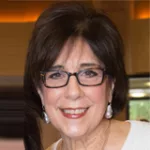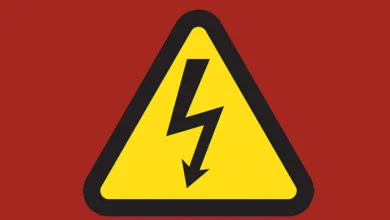
You may not realize it, but you’ve been practicing for retirement since grade school! Think back to those first days of school—new routines, fresh starts, and a little anxiety about the unknown. Retirement is much the same.
Like returning to school, retiring is more than a date on a calendar. It’s a chance to open a new door, reset your routine, build confidence in a different way, and create a “new normal” that’s both intentional and fulfilling.
How to transition into retirement with confidence
Stepping out of a comfort zone into something new can bring anxiety. Discussing these changes with family, friends, or even a retirement coach can help ease the transition. Instead of focusing on perfection, focus on presence, curiosity, and resilience as you create a fresh start.
What daily routine helps you thrive in retirement?
We’ve always been advised to ensure we’re financially prepared for retirement. That’s true. But while money helps us sleep at night, it won’t get us out of bed in the morning. What will?
Not setting an alarm clock is a gift, but having a steady, intentional routine can help minimize anxiety and sharpen focus. Think of your retirement routine as rhythm, not rigidity:
- Start your day with a simple morning ritual (coffee, walk, or journaling).
- Set a loose structure around exercise, meals, and hobbies.
- Make time for rest and spontaneity.
A supportive routine anchors your new normal—physically, mentally, and emotionally.
How can you prepare emotionally for retirement anxiety?
Retirement anxiety is a real thing—not for all, but for many.
The Holmes and Rahe Stress Scale, which lists 43 of life’s most stressful events, ranks retirement at number 10. Many of the other stressors on the list are also tied to retirement.
That’s why emotional readiness is just as important as financial preparation. Think about what excites you, what makes you nervous, and who you can talk to—whether it’s a professional, friends, or family members who’ve been through the same shift.
Remember: retirement, like any other major life change, is a process, not a single event. It’s OK not to have all the answers right away. Stay curious, prioritize resilience, and give yourself grace.

Retirement is not the end — it’s a new beginning.
The definition of retire is to “withdraw,” “stop,” or “hang up one’s boots.” Absolutely not! This next chapter is about renewal—a chance to reset, rebuild, and reignite your purpose.
Six ways to reframe retirement with intention
- Reset your mindset: Accept that your identity is no longer tied to your career—grieve the loss, then get curious about what’s ahead.
- Rebuild your routine: Maintain your health and stay grounded by establishing a balanced daily schedule.
- Redefine your purpose: Ask yourself, what impact do I want to make now?
- Reignite your passion: Rediscover hobbies or interests you once loved.
- Reconnect with others: Cultivate relationships that bring joy and a sense of belonging.
- Reinvent yourself gradually: Allow yourself grace to adapt, grow, and celebrate small wins.
FAQ: Common questions about retirement transition
Q. What’s the hardest part of retirement?
A. For many, losing work identity, establishing daily routines, and handling anxiety can be more emotionally challenging than finances.
Q. What helps with retirement anxiety?
A. Talk openly about your feelings, find mentors who’ve transitioned well, and create a meaningful daily routine that excites you.
Q. What’s the best daily routine for retirees?
A. The best routines combine physical activity, social connection, hobbies, and rest. Focus on creating a rhythm rather than rigid schedules.
Q. Is retirement the end of productivity?
A. No—retirement is a new beginning. Many people use this stage to volunteer, travel, explore passions, and strengthen relationships.
Take the time to envision what you want your retirement life to look like in this new chapter… and go for it!





